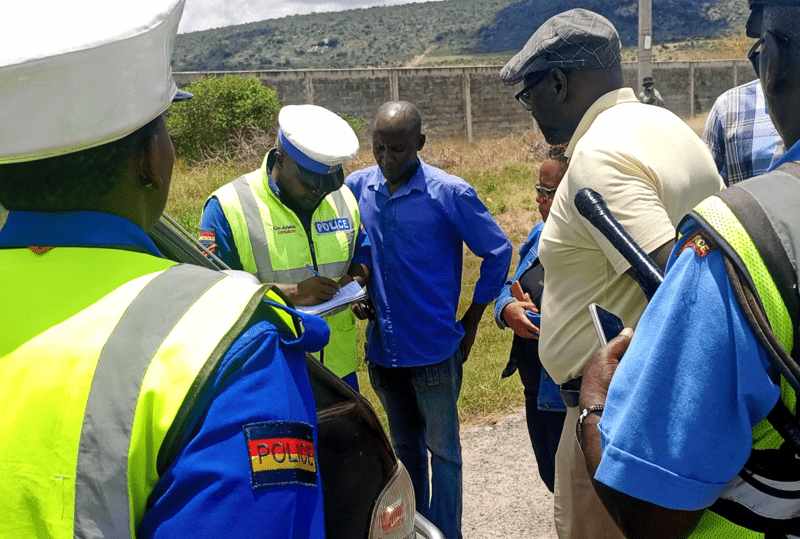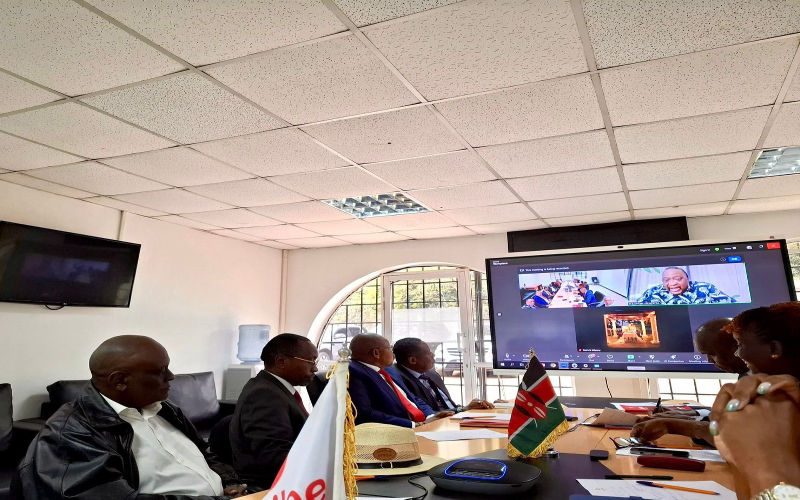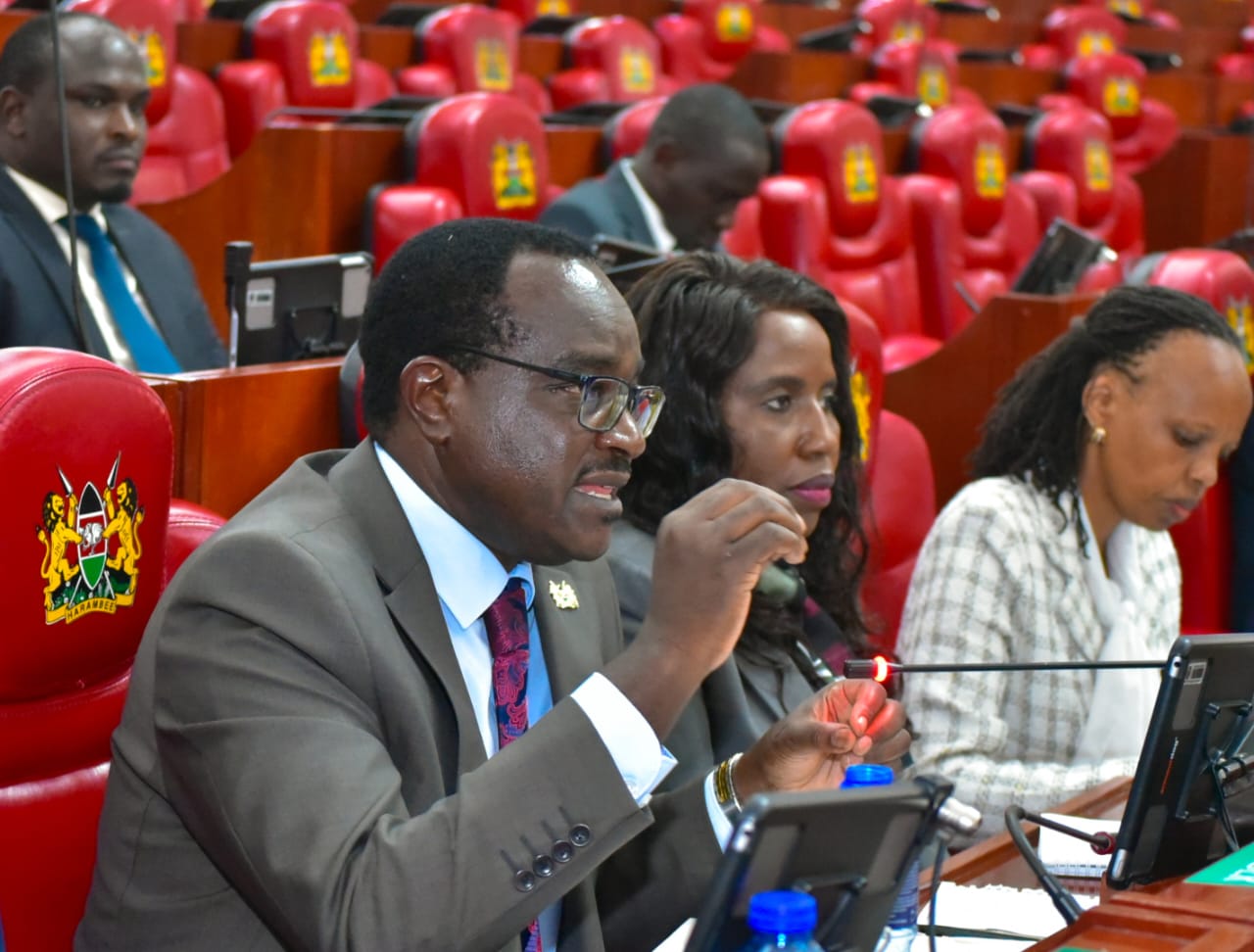Sh1.8 billion in unlawful eCitizen charges revealed in audit spark concern over government accountability

The audit also found a Sh2.57 billion balance in the government’s Settlement Account as of June 30, 2024, which could not be linked to any invoices from the Pesaflow system.
The government unlawfully collected over Sh1.8 billion from Kenyans through the eCitizen platform before January 2023, in violation of legal requirements on administrative charges, the Auditor-General has revealed.
According to the audit report for the financial year ending June 30, 2024, these funds were collected as “convenience fees,” contrary to guidelines that mandate administrative charges be proportional to the amount paid.
More To Read
- Audit flags 25 TVET institutions for breaching procurement, financial regulations
- Audit reveals KNTC let Sh40.6 million worth of food rot amid poor oversight and overstocking
- Auditor General flags REREC for illegally siphoning Sh110 million from fuel levy
- Education stakeholders urge EACC, DCI to probe Sh3.7 billion ghost schools scam
- Audit exposes KICC spent Sh30.9 million on hotel meetings contrary to law
- Taxpayers lose Sh4.8 billion to interest payments on delayed donor projects - report
The report also found that additional payments were made to companies not included in the official contract for the development and maintenance of the eCitizen platform.
The audit shows that, before January 23, 2023, the National Treasury imposed a flat fee of Sh50 or $1 per transaction across all eCitizen payments. This contravened Gazette Notice No. 9290 of December 23, 2014, which required a prorated fee. As a result, the government irregularly collected Sh1,807,946,257 and $3,333,989 from the public.
This irregularity persisted even after the publication of Gazette Notice No. 17422 on December 14, 2023.
The Auditor-General’s report states: “Between December 14, 2023 and June 30, 2024, the Treasury overcharged users by Sh30,729,415 through the previous payment gateway and Sh319,029,250 via the new gateway.”
Procurement rules breach
The audit further revealed a breach of procurement rules, with Sh492,162,940 and $414,299.60 (equivalent to Sh53,519,526.53) paid to Electronic Citizen Solutions Ltd—a company not listed in the government’s contract for platform support and maintenance.
According to the Framework Contracting Agreement, the government was contractually bound to M/s Webmasters Kenya Limited, in consortium with Pesaflow Limited and Olive Tree Media Limited, under the oversight of the ICT Authority.
“This arrangement exposes the Government to potential legal disputes that might arise from payments to parties not part of the contract,” the Auditor General warned.
Of the total sum paid, Sh142,162,940 and $414,299.60 (Sh53.5 million) was allocated for payment gateway services. However, the Auditor-General termed this expenditure irregular, arguing that the government should not be charged for using its own digital infrastructure.
The report also flagged four unauthorised transactions worth Sh127.85 million made on January 25, 2024, from MPesa paybill 222222, which was meant to transfer funds directly to the KCB Settlement Account. Instead, the money was sent to private entities, with no documentation or approvals provided for audit review.
“This is against Article 201 on principles of Public Finance that requires public funds to be used in a prudent and responsible way,” the report reads.
Additional concerns were raised over receipts of Sh68.7 million and $48.1 million found in an Equity Bank account labelled ‘pesaflow’.
No bank statements
This account was not among the Treasury-approved collection accounts, and its bank statements were not made available for audit, making it impossible to trace how much money was collected through it.
“In this regard, it was used to irregularly collect money,” noted Auditor-General Nancy Gathungu.
The audit also questioned the ownership and control of the eCitizen platform. Originally developed under a government initiative funded by the World Bank and the International Finance Corporation (IFC), the platform was handed over to the National Treasury in 2017. IFC formally transferred all relevant materials—including contracts, source code, and business plans—through a letter dated August 7, 2017.
Despite this, the audit noted that on January 13, 2023, the Ministry of Information, Communications and the Digital Economy entered into another handover agreement with Webmasters Kenya Ltd, in which the vendor agreed to “unconditionally hand over” the platform to the government.
“It was not explained how the ownership and control of the eCitizen Platform ended up in the hands of the vendor after having been handed over to the National Treasury by IFC in 2017,” the report stated.
“Further, it was established that after the transfer of ownership by Webmasters Ltd in January 2023, the government did not obtain full control of the systems, resulting in continued over-reliance on the vendor.”
Point of failure
The Auditor-General warned that ongoing vendor control over a system hosting most government services creates a dangerous single point of failure.
The audit also found a Sh2.57 billion balance in the government’s Settlement Account as of June 30, 2024, which could not be linked to any invoices from the Pesaflow System. These unaccounted receipts were attributed to partial, erroneous, or duplicate payments, indicating significant weaknesses in revenue tracking.
“This indicates a lack of revenue traceability and accountability, which can lead to misappropriation, fraud or revenue leakages,” Gathungu said.
“This may affect service delivery, because not all revenue collected is remitted to MDAs.”
Further scrutiny of the eCitizen Reporting Module revealed inconsistencies in settlement reports.
For example, while the Government Digital Payment (GDP) unit recorded Sh2.24 billion as due to the Tourism Fund by the end of June 2024, weekly remittance reports showed only Sh1.72 billion was transferred, leaving a discrepancy of Sh515.49 million.
“This discrepancy highlights inadequacies in the eCitizen reporting module, raising concerns about the reliability and accuracy of the settlement reports generated by the system,” the Auditor concluded.
Top Stories Today











































